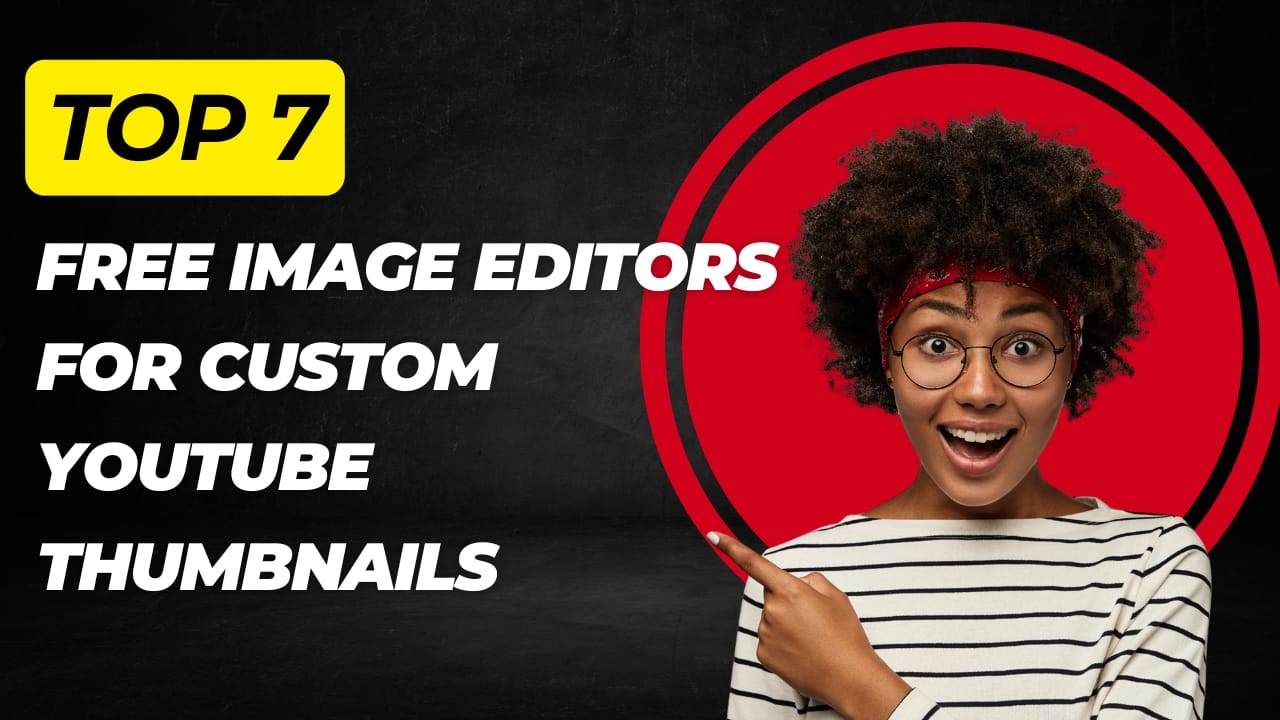Crafting a standout thumbnail often starts with the right editor. Whether you’re a beginner or a pro, free tools can help you add text, overlays, and effects that make viewers click. Here are seven of the best no-cost image editors each with its own strengths—to take your thumbnails to the next level.
Table of Contents
- 1. Canva
- 2. Photopea
- 3. GIMP
- 4. Pixlr
- 5. Fotor
- 6. LunaPic
- 7. BeFunky
- 8. Using Raw Assets from ThumbnailDown
- 9. Personal Experience
- 10. Final Words
- 11. References & Further Reading
1. Canva
Canva’s drag-and-drop interface makes it perfect for beginners. It offers pre-made thumbnail templates in the correct 1280×720 format, plus easy tools for adding text, icons, and shapes. While some premium elements cost money, thousands of free graphics and fonts are available.

2. Photopea
Photopea is a web-based clone of Photoshop, supporting layers, masks, and advanced adjustments. It opens PSD files directly, so you can edit professional templates without installing software. ads can be a bit distracting, but you can upgrade or use an ad-blocker for a cleaner workspace.
3. GIMP
GIMP (GNU Image Manipulation Program) is the go-to free desktop editor. It has powerful features like customizable brushes and filters, plus support for plugins. the interface takes time to learn, but once you master it, you can create complex, high-quality thumbnails offline.
4. Pixlr
Pixlr offers both Express (simplified) and E (advanced) modes in your browser. The Express mode is perfect for quick tweaks—crop, resize, add text—while E mode gives you layers and blend modes. There’s limited free storage, but you can export directly when you’re done.
5. Fotor
Fotor combines easy editing with AI-powered enhancements. Its “1-Tap Enhance” automatically adjusts brightness and contrast, which is handy when your raw thumbnail looks dull. You also get filters and sticker packs to add personality at a single click.
6. LunaPic
LunaPic is an online editor known for quirky filters and animation effects. You can add glitter text, drop shadows, or even animated GIF overlays. It’s not as polished as others, but if you want unique stylistic touches, LunaPic delivers.
7. BeFunky
BeFunky blends simplicity with creative tools like cartoonizer and tilt-shift. Its collage maker is great for thumbnails showing multiple scenes. Most basic features are free, and the premium plan unlocks higher-resolution exports if you need extra pixels.
8. Using Raw Assets from ThumbnailDown
Your editor is only as good as the image you start with. Use ThumbnailDown to grab HD or 4K thumbnails directly from YouTube. These raw assets give you maximum detail—so when you crop, overlay text, or apply filters, your final thumbnail stays crisp, not pixelated.
9. Personal Experience
I first used Canva for my travel vlogs—it was fast but limited my creative control. After discovering Photopea, I could tweak layers and masks for a professional look. Now I grab 4K source images with ThumbnailDown and fine-tune them in GIMP. The result? A unified channel style that improved my click-throughs by 30%!
10. Final Words
Choosing the right free editor depends on your workflow: Canva for speed, Photopea or GIMP for precision, or Pixlr and Fotor for quick fixes. Always start with a high-resolution thumbnail from ThumbnailDown.com, then pick the tool that matches your skill level and design goals. Experiment with a couple and find your perfect match!